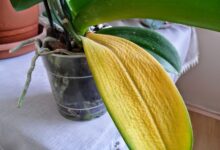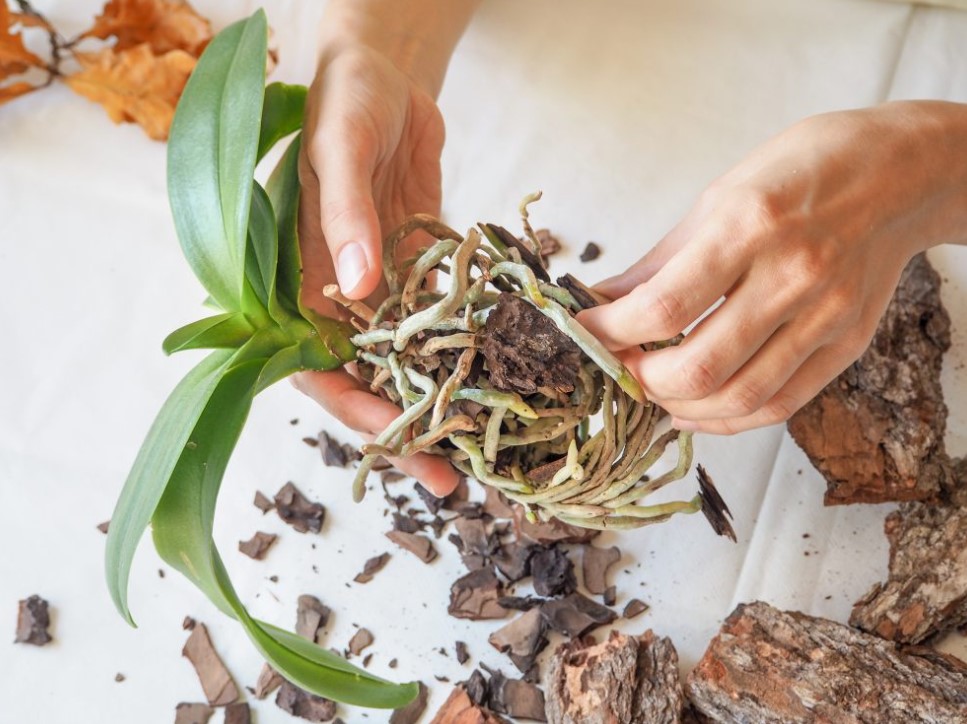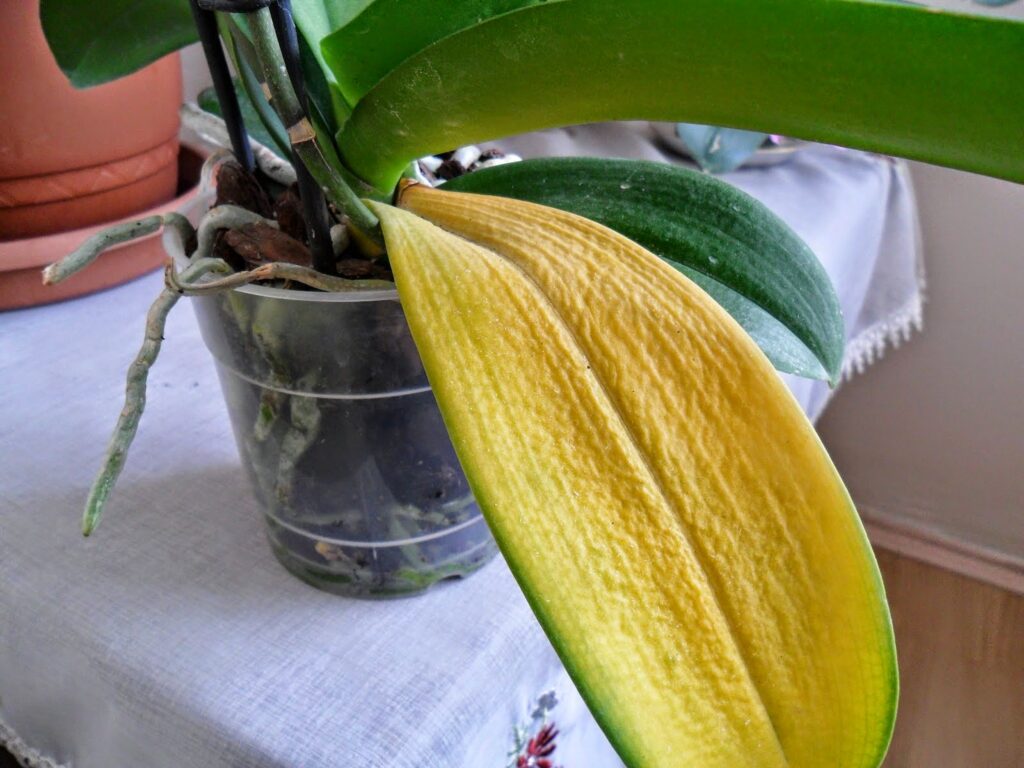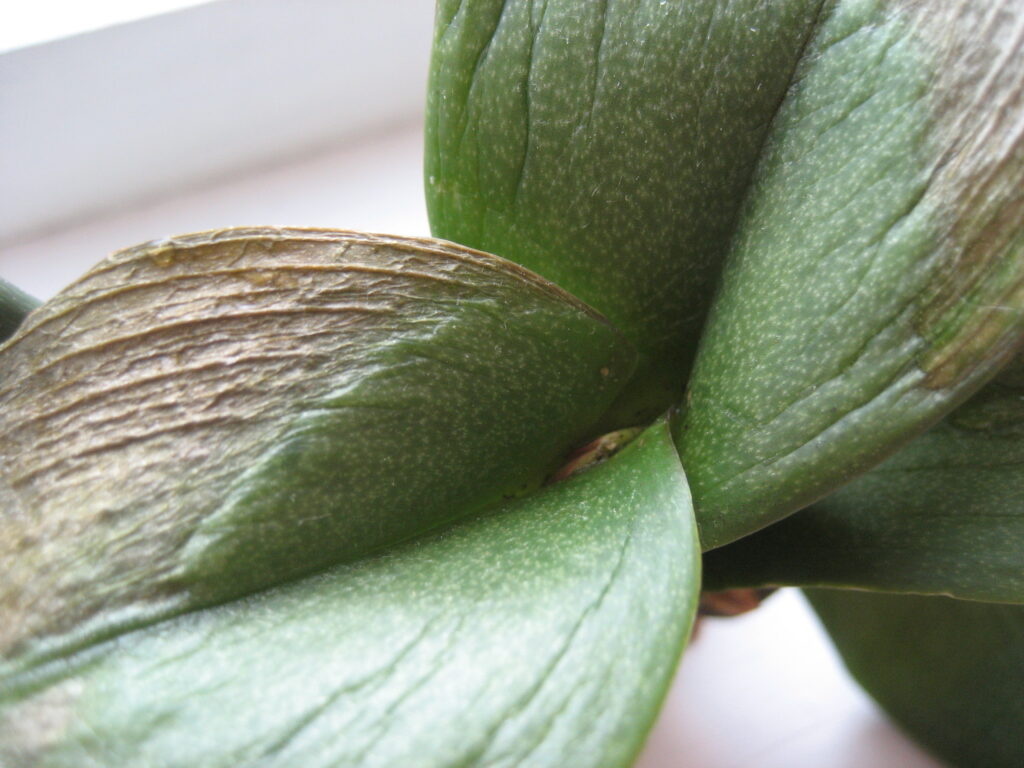
Why Do Orchid Leaves Turn Yellow? The Mystery Unveiled!
admin
- 0
Orchids are some of the most beautiful and elegant plants, but they can also be quite delicate. One common problem that orchid owners face is yellowing leaves. There are several factors that can cause orchid leaves to turn yellow, including watering mistakes, insufficient or excessive sunlight and ventilation, inappropriate pot and soil selection, diseases, and pests.
Watering mistakes are one of the leading causes of yellowing orchid leaves. Incorrect watering methods or frequency can cause root rot, which in turn causes the leaves to turn yellow. Providing the correct amount of sunlight and proper ventilation is also crucial for healthy orchid leaves. The orchid plant requires a humid environment, but overwatering should be avoided to prevent root rot. Additionally, air circulation helps prevent plant diseases and keeps the leaves healthy.
Pot and soil selection are also important factors in maintaining healthy orchid leaves. Choosing the right pot for the orchid plant and selecting special orchid soil are crucial. Inappropriate pot and soil selection can cause the plant’s roots to rot, leading to leaf yellowing. Lastly, pests like spider mites, whiteflies, scale insects, and aphids can also affect orchid leaves.

Preventing orchid leaves from turning yellow involves applying the correct care methods. Identifying the cause of yellowing leaves is crucial before determining an appropriate treatment method. Regularly checking the plant and providing suitable conditions for the orchid plant are also essential for maintaining healthy orchid leaves.
1. Why Do Orchid Leaves Turn Yellow: Basic Reasons
Table of Contents
ToggleThe main factors that cause orchid leaves to turn yellow include watering, nutrition, diseases, and pests. While watering is essential for orchid plants to survive, incorrect watering method or frequency can cause orchid leaves to turn yellow. In addition, not paying attention to the plant’s nutrition needs can also lead to leaf yellowing. Diseases and pests are also other factors that affect orchid leaves.
2. Watering Mistakes: Can Cause Orchid Leaves to Turn Yellow
Orchid plants are quite sensitive when it comes to watering. Incorrect watering method or frequency can cause orchid leaves to turn yellow. For example, giving too much water to an orchid plant can cause the roots to rot and the leaves to turn yellow. Also, when the orchid plant stays in the soil for too long, the soil moisture level decreases, and the leaves dry out.
Using the correct watering method is important to maintain the health of the orchid plant. The orchid plant thrives in a humid environment, but overwatering should be avoided to prevent root rot. Generally, the orchid watering process should be done after the top layer of soil has dried.

3. Sunlight and Ventilation: Factors That Affect Your Orchid Leaves
Orchid leaves require the right amount of sunlight and proper ventilation. Insufficient or excessive sunlight and ventilation can cause orchid leaves to turn yellow.
Getting the correct amount of sunlight is crucial for orchid plant growth. The orchid plant should be kept away from direct sunlight, but it still needs enough light. Additionally, providing proper ventilation for the orchid plant is crucial. Air circulation helps prevent plant diseases and keeps the leaves healthy.
4. Pot and Soil Selection: Elements That Damage Orchid Leaves
The health of orchid leaves depends on the selection of the right pot and soil. An incorrectly selected pot or soil can cause the plant’s roots to rot, leading to leaf yellowing.
Choosing the right pot for the orchid plant is important. The orchid plant requires a special orchid pot that can easily provide air to the roots. Additionally, soil selection is also crucial. The orchid plant requires special orchid soil, and regular potting soil should not be used.

5. Pests: How They Affect Orchid Leaves?
Pests are another factor that causes orchid leaves to turn yellow. Pests that suck the plant’s sap can hinder plant growth and cause leaf yellowing.
Common pests for orchid plants include spider mites, whiteflies, scale insects, and aphids. These pests usually hide under the leaves or in the roots. The presence of pests can also show other signs besides leaf yellowing.
To protect against pests, you need to regularly check your plant. If pests are detected, an appropriate insecticide should be used.
6. Yellowing of Orchid Leaves: Prevention and Treatment Methods
The best way to prevent orchid leaves from turning yellow is to apply the correct care methods. However, if the leaves have already turned yellow, you need to know about treatment methods.
Providing the correct watering method, proper sunlight and ventilation, selecting the right pot and soil, and preventing pests will help keep the leaves healthy. When the leaves turn yellow, the cause must first be identified. After identifying the cause, an appropriate treatment method can be used.
7. Key Points to Consider in Orchid Care
Orchid care is crucial for maintaining the health of the plant. However, if you do not pay attention to some key points, orchid leaves may turn yellow or even cause the plant to die.
The orchid plant needs to be grown with the correct watering method, proper sunlight and ventilation, selecting the right pot and soil, and preventing pests. Additionally, regular feeding of the plant is also important.

8. What Should be Considered for Healthy Orchid Leaves?
Orchid leaves are one of the most important indicators of plant health. Healthy orchid leaves are bright green in color, and the edges of the leaves are smooth.
The orchid plant needs to be grown with the correct watering method, proper sunlight and ventilation, selecting the right pot and soil, and preventing pests. Additionally, regular feeding of the plant is important. The plant can be fed using special orchid food.
To keep orchid leaves healthy, the plant must be cared for regularly. In addition to care, providing suitable conditions for the orchid plant is also important.


